

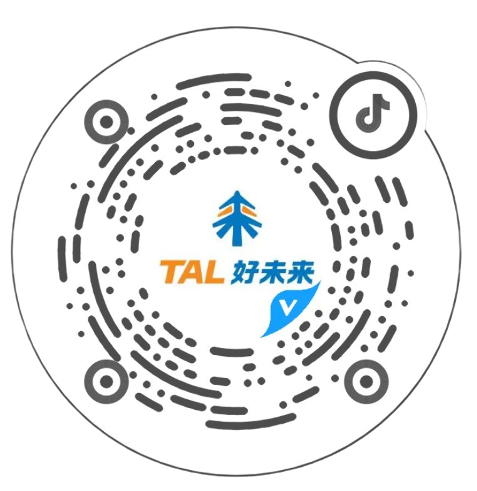


On November 26, at the GES 2019 Future Education Conference, Wu Yingmin, Vice President of the Chinese Society of Education, Wang Kainan, former Deputy County Mayor of Tongbai County, Henan Province, Diao Hongfei, Principal of Xingyi Siyuan Experimental School, Guizhou, Yin Shujun, Founder and CEO of Robor Smart Pen, and Wang Wei, President of Smart Education at Haoweilai discussed the topic "Towards Education Informatization 2.0: Technology Driving Education Equity".
Key Points:
Wu Yingmin: Educational equity is the process and result of achieving people's satisfaction with education, but educational equity is not entirely equivalent to educational fairness. What is a fair education? Fair education is meeting the personalized needs of different groups and individual students.
Wang Kainan: Education is a public product. In remote counties where there is a severe shortage of teachers and an aging qualification, we should focus on two issues: how to implement moderately applicable technology? How to make teachers take the lead in front of the students?
Diao Hongfei: Before introducing smart education, we taught craftsmen, but now we are teaching philosophers. Educational equity is not just about hardware construction. Through smart classrooms and dual-teacher classrooms, we can narrow the gap between us and big cities by shrinking the content.
Yin Shujun: We often imagine where the learning data of students will come from in five or ten years? Through traditional paper-and-pen classrooms, we can collect students' behavioral data and answer results on ordinary paper, and analyze and evaluate them, making the process visualized, helping teachers better understand students' learning situations.
Wang Wei: In recent years, with the rapid development of the internet and information technology, the deepening and integration of education have been continuously applied. After practice, it can help education resources and services share across time and space. Based on the progress of technology, we are fully committed to promoting the goal of educational equity.
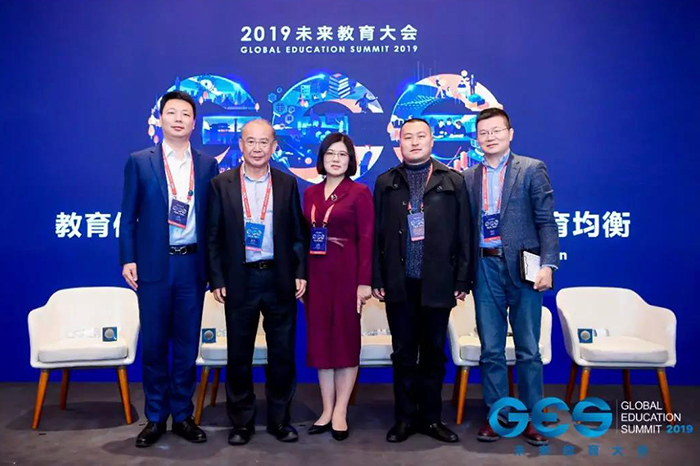
Group photo of participants in the sub-forum
"True fairness is about meeting the personalized needs of different ethnic groups and individual students." Wu Yingmin, Vice President of the Chinese Society of Education, said that educational equity is not entirely equal to educational fairness. When talking about educational fairness, it is necessary to meet the requirements of national talent training and pay attention to individual differences and their reasonable demands for development. He mentioned that if education supply can be expanded, and various social forces can participate in education supply in a multi-level and diversified manner, it will have a more specific direction for promoting educational fairness and gradually realize people's satisfactory education.
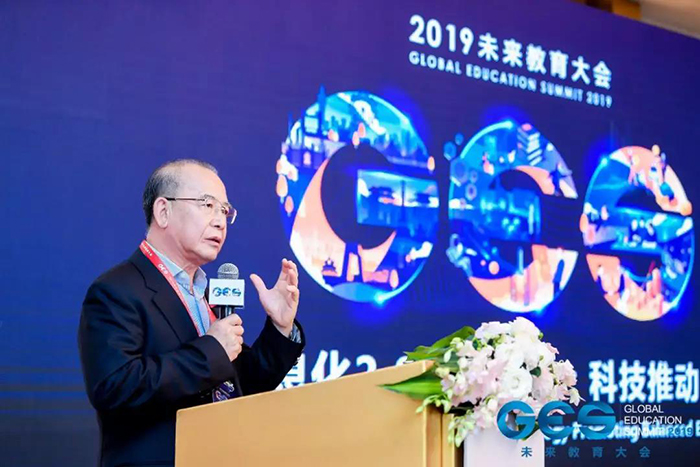
Wu Yingmin, Vice President of the Chinese Society of Education, delivers a keynote speech
"Moderately applicable educational technology is more helpful to impoverished counties than technology that exceeds appropriate conditions." Ms. Wang Kainan, former Deputy County Mayor of Tongbai County, said that in China, there are many remote counties where teacher structure, teacher training, and educational technology need to be optimized. Smart education should consider how to help teachers take the lead in front of students and how to implement moderately applicable technology. It is expected to help remote counties achieve the goal of modernizing education in the future.
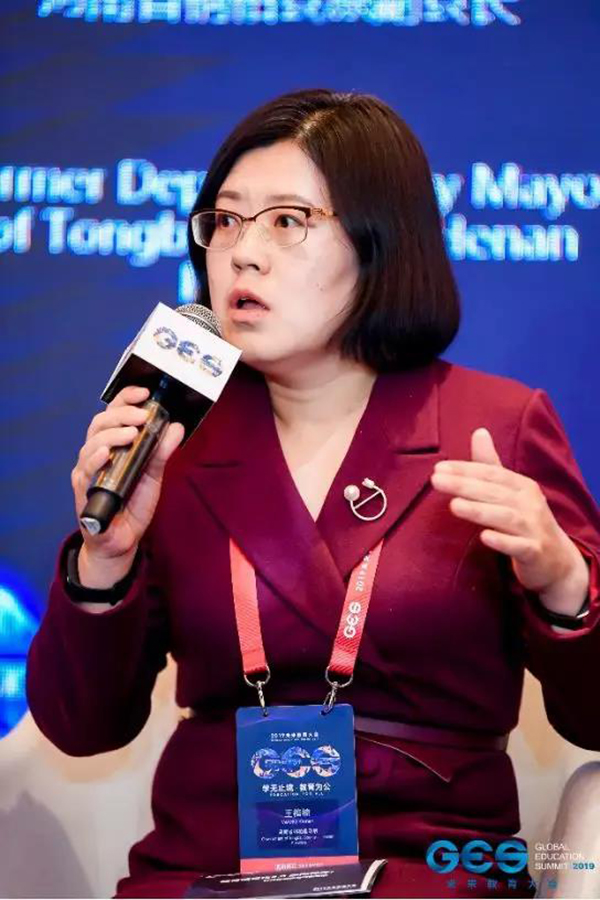
Ms. Wang Kainan, former Deputy County Mayor of Tongbai County, Henan Province, delivers a speech
"By narrowing the gap through smart education, this is truly high-quality education." Diao Hongfei, Principal of Xingyi Siyuan Experimental School in Guizhou, said that with the development of technology, not only has there been a compression of space and distance in transportation, but there has also been a significant improvement in teaching efficiency in education. The introduction of smart classrooms and dual-teacher classrooms has shown positive and significant results in the changes of teachers and students. With the strong teaching resources gathered by Haoweilai, and through technological means, it gradually achieves the balanced development of education. With the support of smart education, Xingyi Siyuan Experimental School in Guizhou has made a qualitative leap, gradually achieving individualized differential teaching.
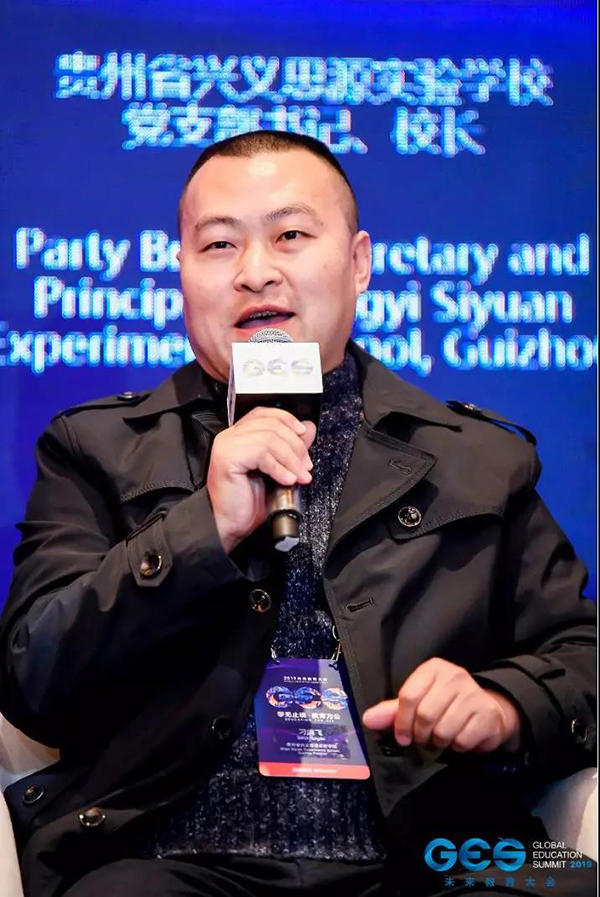
Principal Diao Hongfei of Xingyi Siyuan Experimental School in Guizhou delivers a speech
"In the process of writing, imagine how to effectively and with high quality collect data." Yin Shujun, founder of Robor Smart Pen, said that there is no perfect solution in writing, but there can be a comprehensive plan. The birth of traditional paper-and-pen classrooms can collect students' handwritten data and answer results in the process, and analyze and output stratified individualized data, helping teachers better understand individual differences in students, and providing clear data support in teaching and lesson preparation, implementing "education has direction, and teaching has goals."
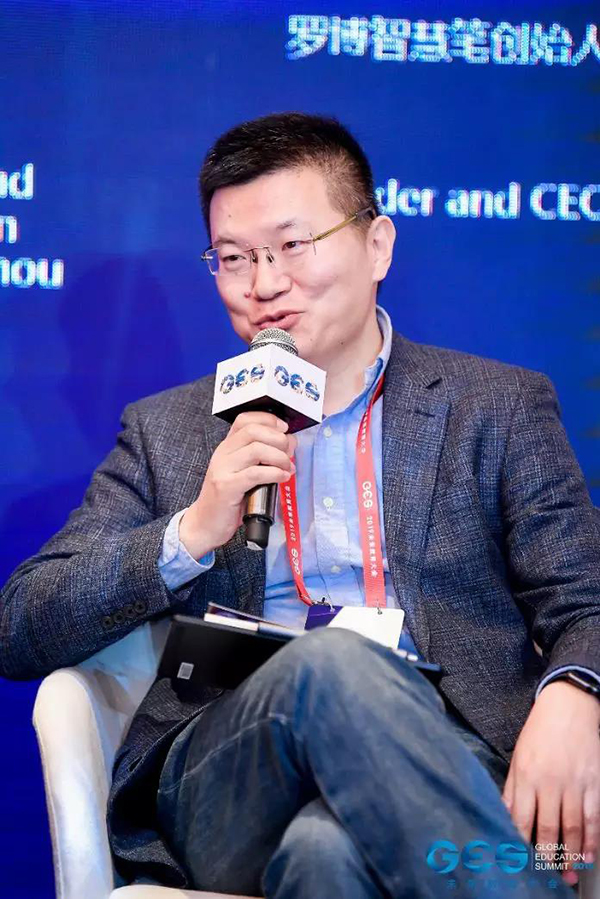
Yin Shujun, founder of Robor Smart Pen, delivers a speech
"Starting from the goal, open up the direction for exploration." Wang Wei, President of Smart Education at Haoweilai, summarized the practical achievements of education informatization at the sub-forum. He said that in recent years, with the rapid development of the internet and information technology, the deepening and integration of education have been continuously applied. After practice, it can help education resources and services share across time and space, for example, through ways such as "dual-teacher classrooms" and "broadcast classrooms", so that children in remote provinces and regions can enjoy the same high-quality teaching services, promote the widespread and equitable distribution of high-quality educational resources, and also have practical applications in smart education, opening up the "black box" of education, providing support for efficient and transparent management for schools and education authorities, and continuously advancing on the road of technology-driven education progress.
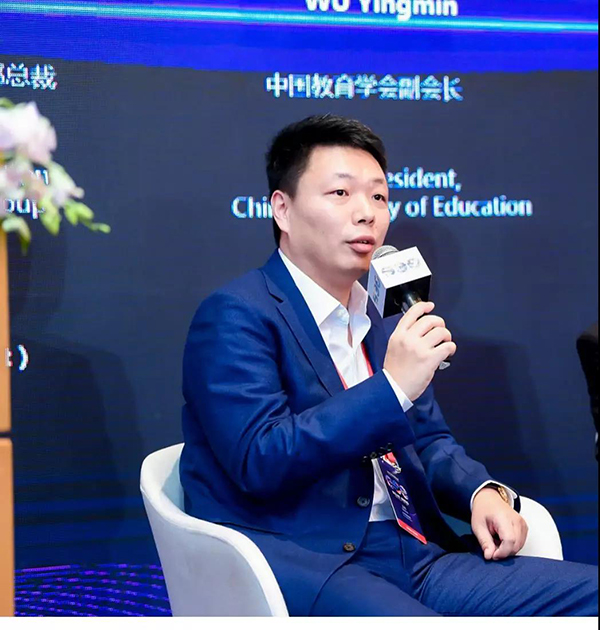
Wang Wei, President of Smart Education at Haoweilai
Haoweilai Smart Education is committed to the mission of "technology driving educational progress," serving tens of thousands of teachers and hundreds of thousands of students in 500 public schools in provinces and prefectures such as Ningxia, Guangdong, Qinghai, Shaanxi, Yunnan, Guizhou, and Henan. It hopes to use technology as a medium and the new generation of information technology as a tool to deliver high-quality educational resources to areas in need, achieve the development goal of "Internet + Education," and achieve the strategic goal of the "Education Informatization 2.0 Action Plan," providing replicable promotion experience for the road to a new era of education models.